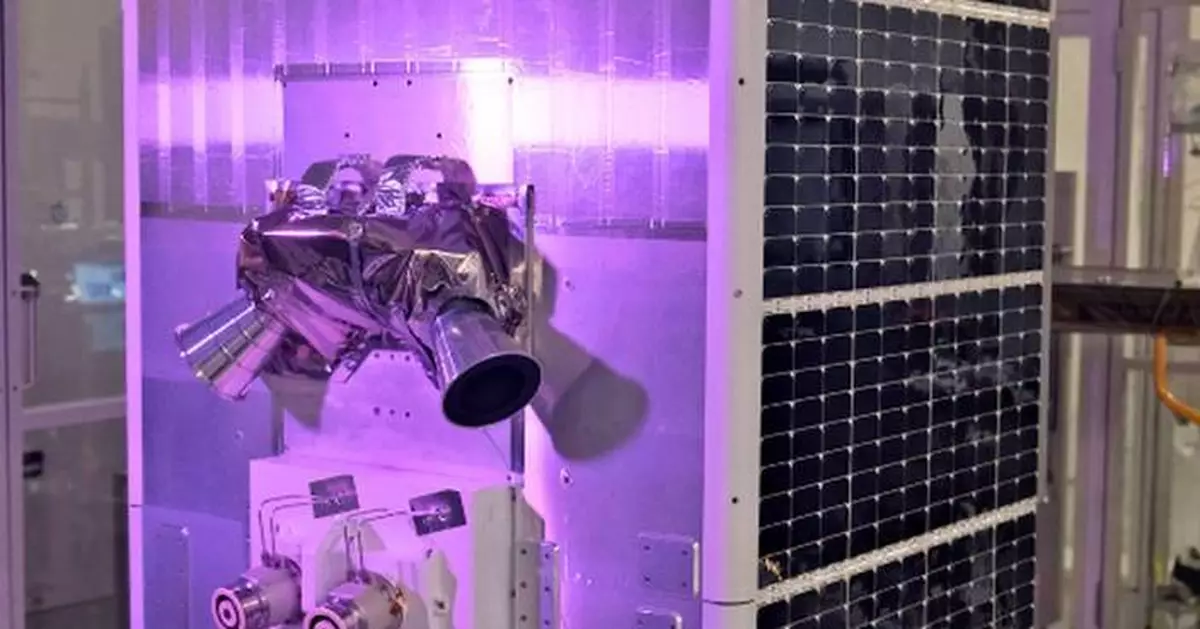DENVER--(BUSINESS WIRE)--Mar 3, 2025--
Albedo, soon to be the first commercial company to operate in Very Low Earth Orbit (VLEO), has been selected for a Strategic Funding Increase (STRATFI) opportunity by the Air Force Research Laboratory (AFRL), with potential funding of up to $12 million. The contract will provide AFRL with Albedo's unique dataset on how U.S. Government space capabilities can operate effectively in VLEO, an orbital regime that offers significant advantages but remains largely untapped.
This press release features multimedia. View the full release here: https://www.businesswire.com/news/home/20250303573165/en/
The STRATFI agreement builds on Albedo's pioneering work in VLEO following the successful launch of its first satellite, Clarity-1, in March 2025. Clarity-1 will collect 10 cm resolution visible imagery and 2 meter thermal infrared imagery, which is currently only possible using planes and drones. Under the contract, Albedo will share VLEO-specific, on-orbit data and provide analysis to support the development of new missions and payloads beyond its own optical sensors.
This partnership represents a significant step in advancing the national space architecture through commercial innovation. VLEO offers several advantages, including superior image resolution, reduced power requirements, natural debris removal through atmospheric drag, and enhanced space domain awareness.
“VLEO represents a fundamental paradigm shift in space architecture, breaking the traditional tradeoff between exquisite capability and proliferated architectures," said Topher Haddad, CEO of Albedo. "As counterspace threats grow and LEO becomes increasingly congested, Albedo's VLEO approach delivers the optimal economics for exquisite capabilities – high performance at costs that enable constellation resilience. We're honored to pioneer this untapped orbital regime and help establish U.S. dominance in this strategic domain.”
The data sharing portion of the contract will encompass various operational data, including how GNSS telemetry is refined into precision orbit determination data in a dynamic environment, comparisons between expected and actual orbit maintenance performance, and comprehensive information for estimating satellite drag and atmospheric density. Albedo inherently collects atomic oxygen sensor readings and performance metrics for its imaging capabilities, including image quality samples, pointing performance, and agility measurements which it will share with AFRL under this contract.
Central to Albedo's success in VLEO is its Precision bus, a highly-agile, highly-stable foundation designed specifically to overcome the challenges of operating in this demanding orbital regime. Unlike traditional satellite designs, Albedo's approach combines power, performance, and precision engineering to maintain orbit despite high drag and atomic oxygen exposure. The platform features autonomous protective modes for solar events, efficient electric propulsion, advanced GNC sensors and actuators, and a modular interface that can accommodate various high-performance payloads beyond optical sensors.
The STRATFI program provides a streamlined process for funding promising space technologies by matching government and private investment. This award further validates Albedo's technological approach and business model, which delivers unprecedented 10 cm imagery from space while pioneering operations in a challenging orbital regime.
Albedo will begin sharing data with the U.S. Space Force immediately, with ongoing analysis and recommendations to follow throughout the contract period.
About Albedo
Albedo has built and will soon launch the first VLEO platform in the United States, the first of which will provide ultra-high-resolution 10 cm optical imagery - comparable to classified government capabilities at a fraction of the cost. Based in Denver, Colorado, Albedo is revolutionizing space from VLEO, with applications spanning defense, intelligence, mapping, infrastructure monitoring, and climate action. For more information, visit www.albedo.com.
About Air Force Research Laboratory
The Air Force Research Laboratory (AFRL) is the primary scientific research and development center for the Department of the Air Force. AFRL plays an integral role in leading the discovery, development, and integration of affordable war-fighting technologies for our air, space, and cyberspace force. With a workforce of more than 11,000 across nine technology areas and 40 other operations across the globe, AFRL provides a diverse portfolio of science and technology ranging from fundamental to advanced research and technology development. For more information, visit afresearchlab.com.
The views and opinions presented herein are those of the author and do not necessarily represent the views of DoD or its Components. Appearance of, or reference to, any commercial products or services does not constitute DoD endorsement of those products or services. The appearance of external hyperlinks does not constitute DoD endorsement of the linked websites, or the information, products or services therein.
Approved for public release; distribution is unlimited. Public Affairs release approval #AFRL-2025-1088
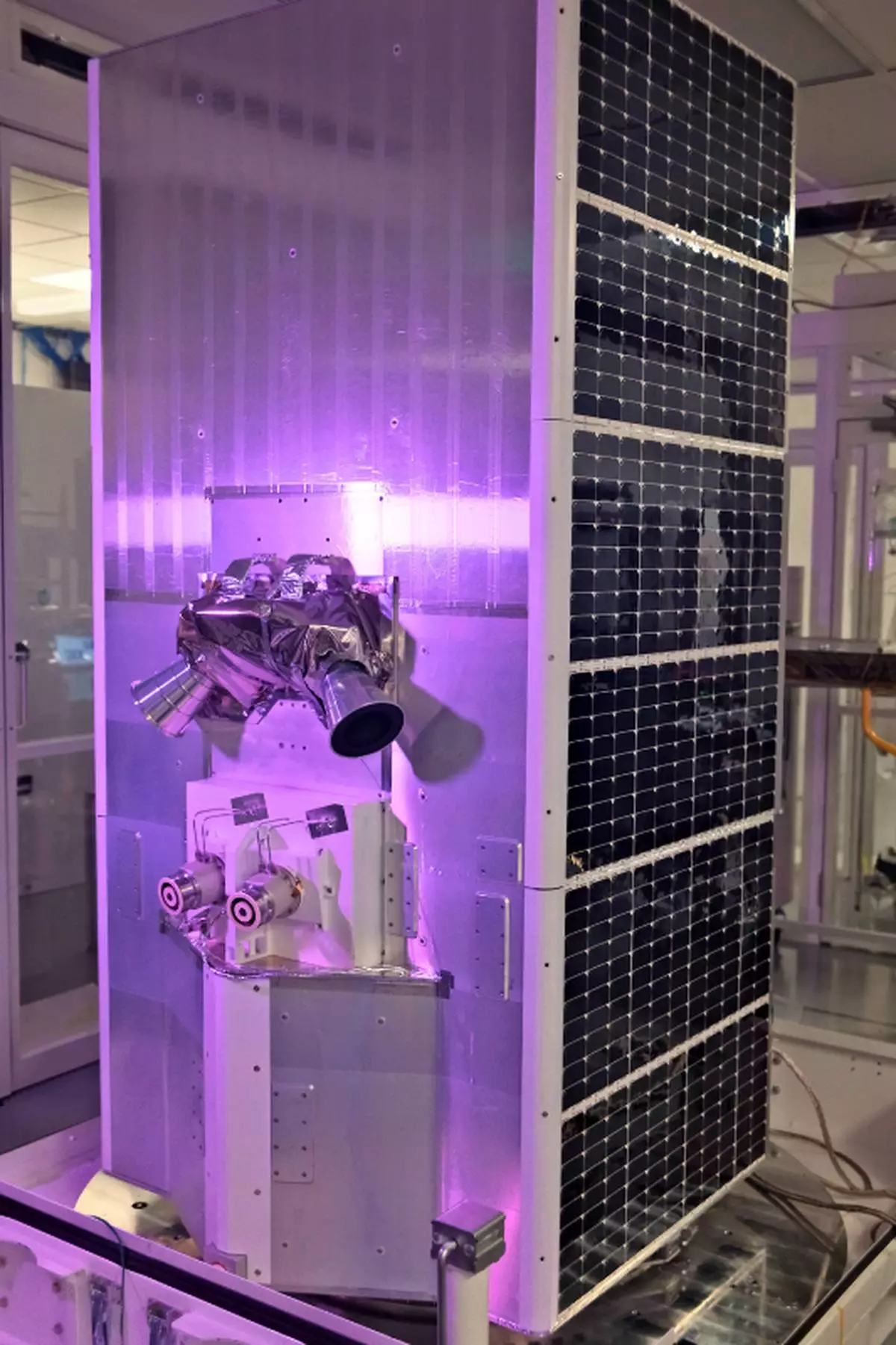

Albedo's Clarity-1 satellite. (Photo: Business Wire)
CHICAGO (AP) — Recruiting women into construction has been a painstaking but broadly popular effort, with growing bipartisan and industry support amid persistent labor shortages. But President Donald Trump's aim to stamp out diversity and inclusion programs threaten to cripple community-based organizations that have been critical to that goal.
The Trump administration has moved swiftly to cut off federal funding to dozens of community groups that implement programs on the ground, including apprenticeship readiness programs designed for women, anti-harassment training, and child care and transportation support for workers who need them.
The overhaul stems from a pair of anti-DEI executive orders, which direct federal agencies to cancel all “equity-related” grants, and require government contractors and recipients of federal funds to certify, under threat of severe financial penalties, that they do not operate DEI programs that violate anti-discrimination laws.
The orders have set off a scramble among many corporations, universities, law firms and major philanthropies to figure out how to adapt their DEI policies to avoid losing federal funding.
But for nonprofits whose very mission involves providing services to historically marginalized communities, the executive orders pose an existential threat, driving several lawsuits alleging Trump's orders are impossible to comply with because they are so vague about what constitutes “illegal” DEI.
Stakeholders in the construction industry are closely following a lawsuit filed by Chicago Women in Trades, an organization founded in 1981 to help women enter the skilled trades. Other similar groups said they were considering litigation after the Department of Labor yanked their grants last week.
About 40% of Chicago Women in Trades’ stems from federal funding, according to court filings.
As the lawsuits play out, Chicago Women in Trades Executive Director Jayne Vellinga said hiring and future programming has stalled because the ultimate fate of the organization's funding is unclear. Current programs are continuing under a cloud of uncertainty.
The sound of whirring drills filled the Ironworkers Local 63 training center just outside Chicago during one exploratory training program that is reliant on state and federal funds. About two dozen women donned hard hats, work gloves and safety glasses to practice assembling windows as an instructor looked on. Two groups raced each other to see how quickly they could perfect each assembly. Another practices caulking nearby.
During the 10-week program, participants spend a week exploring different trades with experienced carpenters, electricians and iron workers. About 70% of the participants successfully move on to apprenticeships.
Sam Barraza, 24, joined the program after struggling with an office job due to ADHD. During a rotation with the Bricklayers Union, Barraza was hired as an apprentice in tuck pointing, a masonry repair process used to restore older buildings.
But Barraza, who is nonbinary, said they would never have understood how to get a foothold in the industry without a program like Chicago Women in Trades.
“There are so many insider things that, if your uncle was in the trades, or your dad did it, whatever, you would know,” Barraza said. “It’s the first time I’ve been excited for a career instead of like, ‘I just have to work to live.’”
Government agencies, construction companies and labor unions have invested billions of dollars to expand apprenticeships and other programs to draw younger generations into the skilled trades, an effort that accelerated as the Biden administration ramped up investment in infrastructure and the semiconductor industry. Part that effort has been programming to make worksites more welcoming to women, racial minorities and LGBTQ people who have long faced bias and harassment in an industry that is majority white and overwhelmingly male.
Progress has been slow but steady. Women, for instance, comprise only 4% of skilled trade workers, but that’s a nearly 30% increase since 2018 and a record high, according to U.S. labor statistics that have been celebrated by both women’s advocacy groups and industry associations. Advocates say recruiting more women and minorities to well-paid skilled jobs helps alleviate pay gaps while addressing labor shortages.
Far from being a target during the first Trump administration, Chicago Women in Trades received two grants in 2019 and 2020 under the Women in Apprenticeship and Nontraditional Occupations program, known as WANTO, which dates back to a 1992 Congressional act signed by President George H.W. Bush.
The first Trump administration increased funding for WANTO, providing more than $8.5 million in grants to 17 community organizations that served more than 3,500 women. Funding for WANTO surged under the Biden administration, which awarded nearly $18 million in grants to more than 20 organizations.
But the future of WANTO is in limbo. Last week, the Labor Department sent termination notices to many of the grants recipients, saying their focus on gender equity and diversity no longer aligns with the administration's priorities, several of the organizations told The Associated Press.
Rhoni Basden, executive director of Vermont Works for Women, said the loss of its $400,000 WANTO grant imperils a new apprenticeship readiness program aimed at building a pipeline of workers in semiconductor manufacturing in the state. The program, using curriculum developed with the industry group Vermont Manufacturing Extension Center, had been scheduled to launch in the spring.
Chicago Women in Trades' WANTO grant is protected for now under a preliminary injunction issued last month by Judge Matthew Kennelly of the U.S. District Court Northern District of Illinois, who ruled that canceling the grant would violate the separation of powers. However, Kennelly declined to protect the organization's four other federal grants, or to extend his protective order to other WANTO grantees.
The Labor Department did not reply to multiple emails seeking clarity about its intentions for WANTO or other similar federal initiatives.
In his 2026 fiscal year budget request, Trump pledged to keep investing in the expansion of apprenticeship opportunities while eliminate funding to “progressive non-profits" that focus on DEI. Instead, the administration proposed sending funding to states and localities to decide how to spend them. The Trump administration argues that many DEI policies pressure employers to hire based on race or gender, or unfairly shut out some workers from training and funding opportunities.
Another WANTO grantee, Maryland Center for Construction Education & Education, said the impact of losing its federal funding will force the suspension of programs to help women enter construction and other industries that are “facing a severe labor shortage — tens of thousands of skilled workers are needed across Maryland in the next few years alone.”
"These are not abstract losses. These are missed paychecks, shuttered training programs, and stalled progress for communities that need it most," the group said in statement, adding that it was exploring “legal and legislative avenues to fight back."
Construction firms have supported outreach programs to women out of sheer need: The industry is seeking more than 400,000 new workers this year to meet anticipated demand, according to trade group Associated Builders and Contractors.
“We need all of the talent and resources that we can get,” said Vanessa Jester, community and citizenship director for Turner Construction in Columbus, Ohio, where construction worker shortages are especially acute.
The company has partnered with Chicago Women in Trades and other community groups to expose women and girls to the construction industry.
“If these young girls can’t see it, feel it, touch it and see that there’s an opportunity, we’re not going to be able to grow,” Jester added.
Turner Construction is one of 800 firms that have joined the “Culture of Care” program launched in 2019 by the Associated General Contractors of America to address harassment, hazing and bullying that has long plagued in the industry.
The association, which has 27,000 member firms, says on its website that Trump's executive orders on DEI have prompted a review of its initiative and resources “to ensure continued compliance with the law.”
Brian Turmail, the association’s vice president of Public Affairs & Workforce, said that while the language of some guidance might be changed, the organization plans to double down on “Culture of Care," saying it's about preventing discrimination that drives away many women and racial minorities from the field.
“There isn’t any other way for the industry to be viable,” he said.
This story corrects the spelling of Sam Barraza's last name.
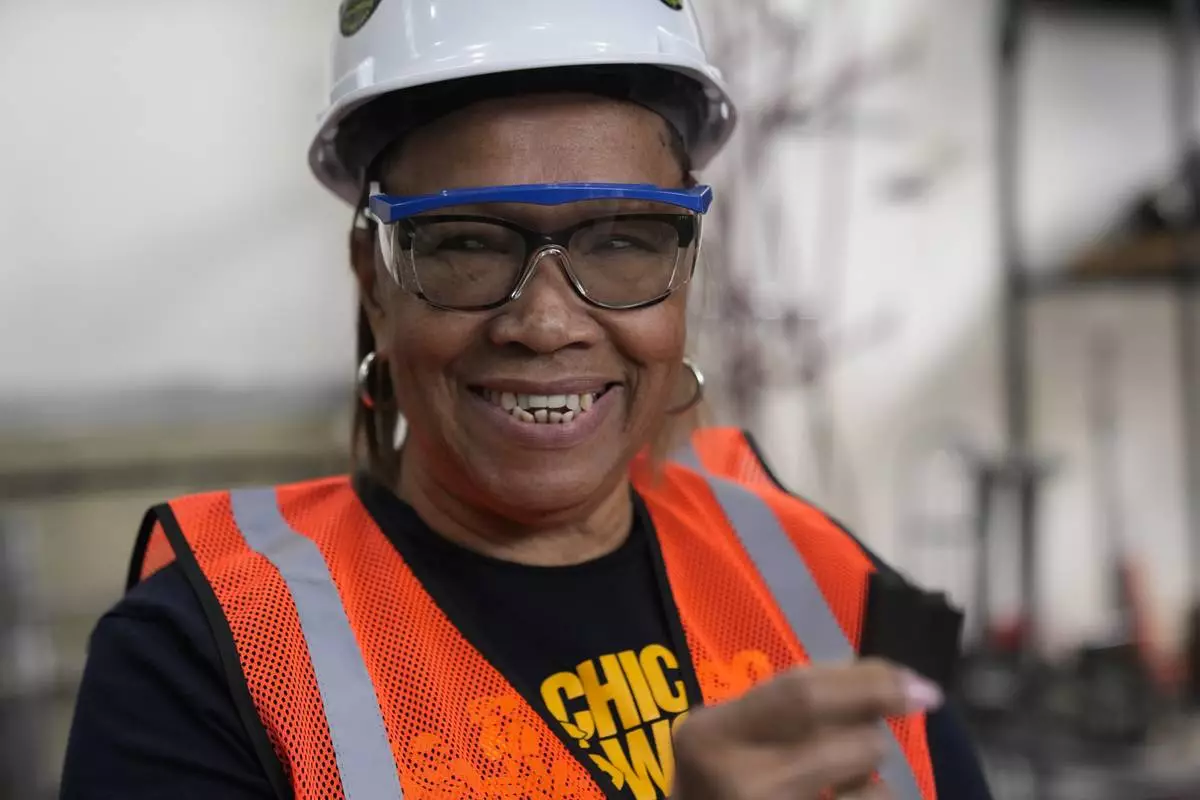
Instructor Kitty Thompson works with students during an Ironworkers Local 63 pre-apprenticeship class Wednesday, March 26, 2025, in Broadview, Ill. (AP Photo/Erin Hooley)
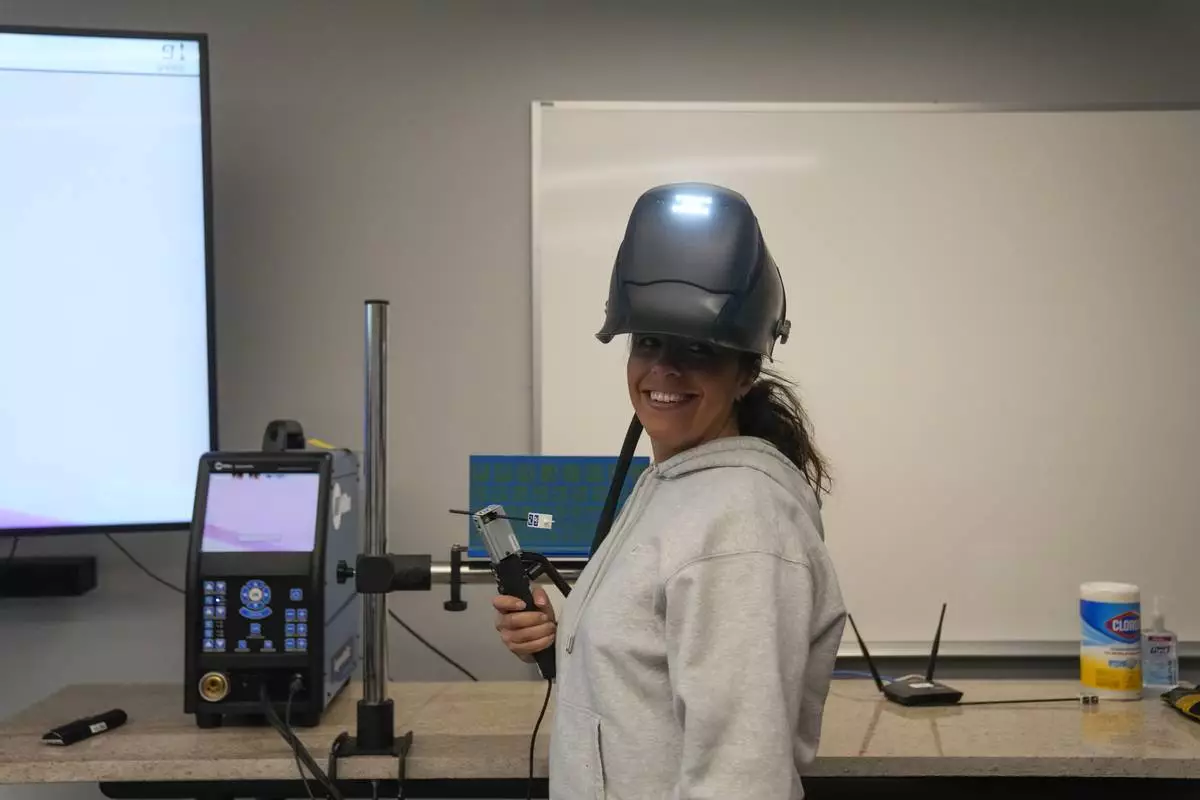
Alejandra Gonzalez practices virtual welding during an Ironworkers Local 63 pre-apprenticeship class Wednesday, March 26, 2025, in Broadview, Ill. (AP Photo/Erin Hooley)
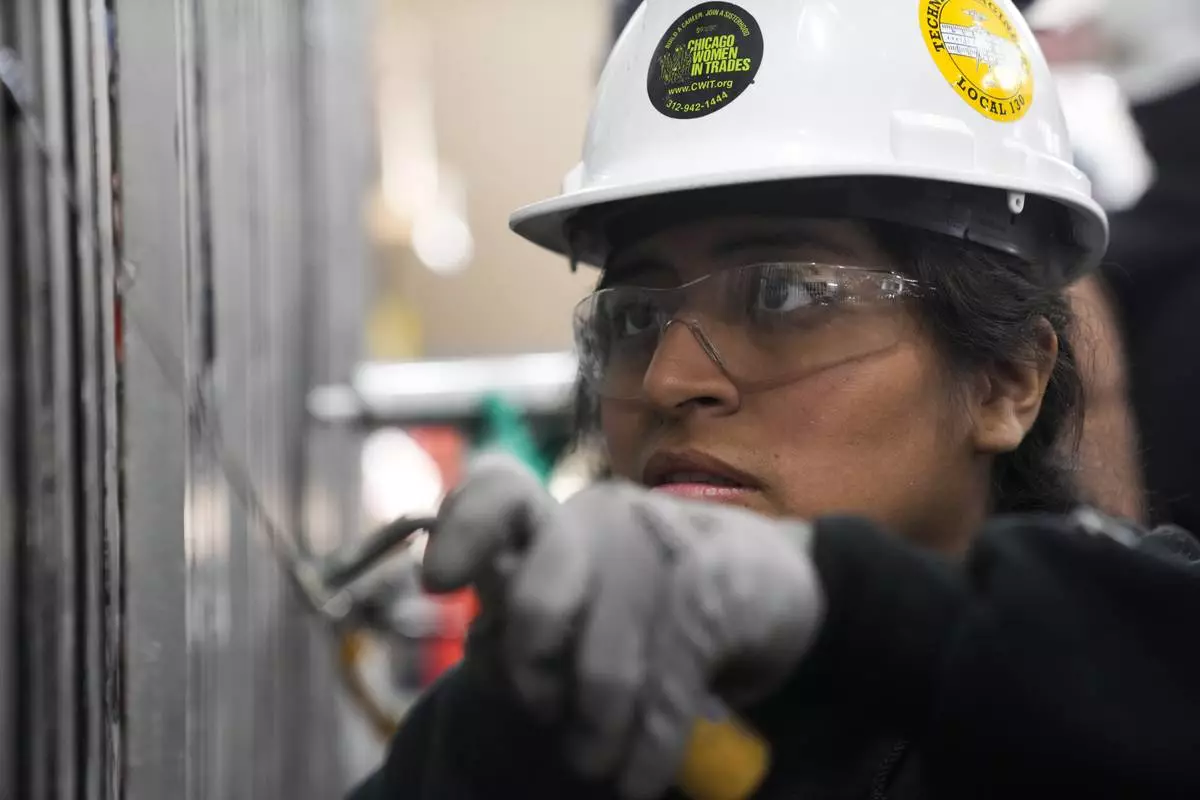
Carol Otarola practices caulking during an Ironworkers Local 63 pre-apprenticeship class Wednesday, March 26, 2025, in Broadview, Ill. (AP Photo/Erin Hooley)
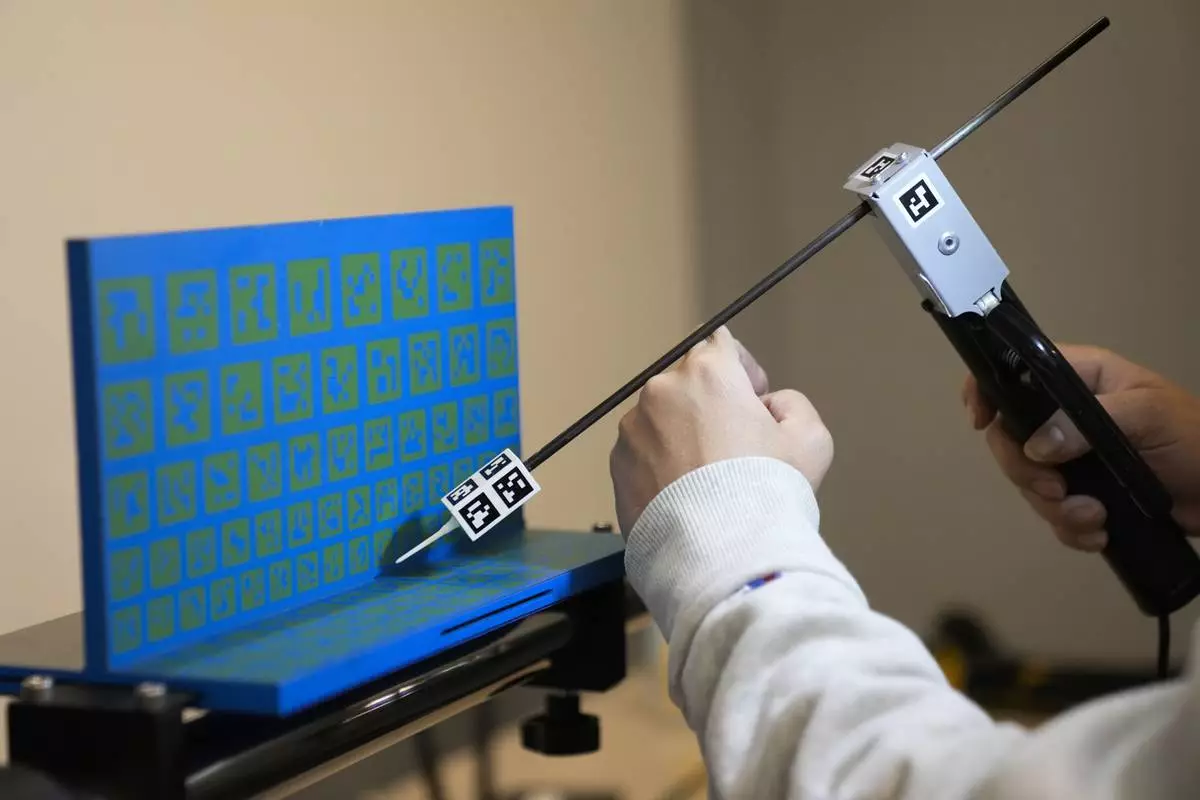
Alejandra Gonzalez practices virtual welding during an Ironworkers Local 63 pre-apprenticeship class Wednesday, March 26, 2025, in Broadview, Ill. (AP Photo/Erin Hooley)
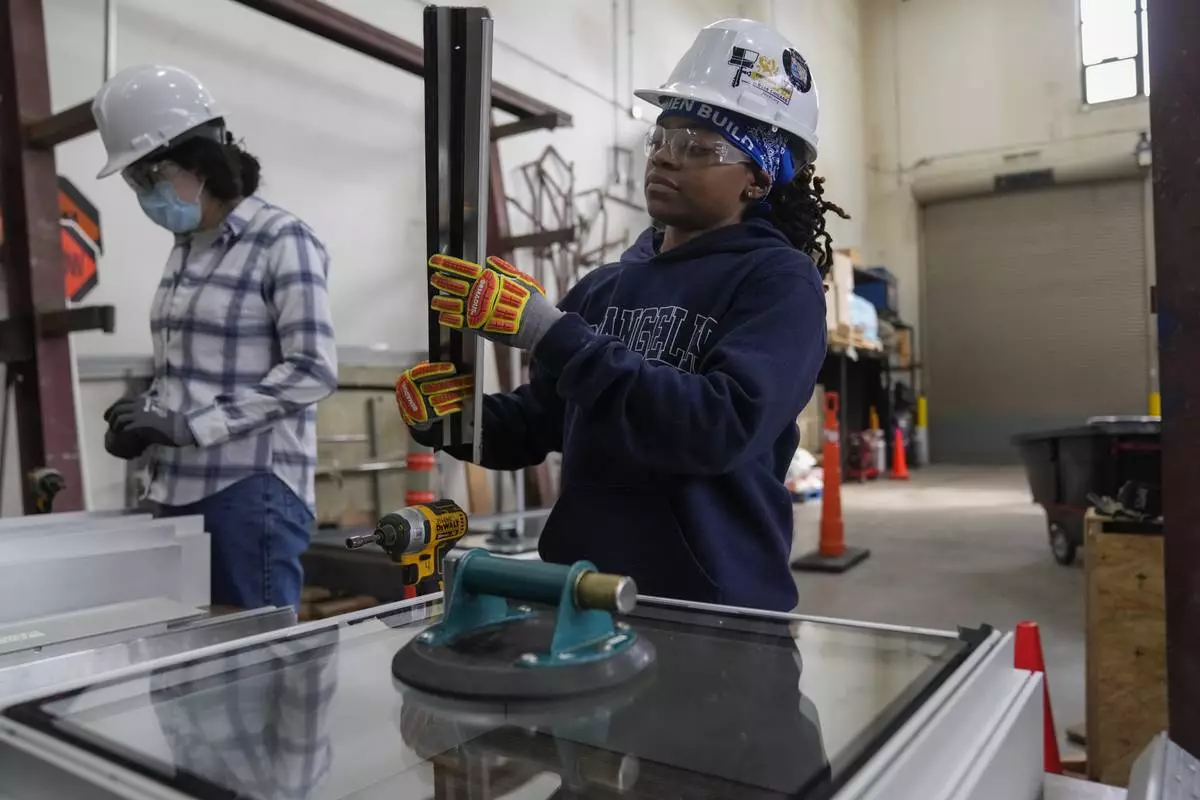
Chyanne Henderson practices putting together a window during an Ironworkers Local 63 pre-apprenticeship class Wednesday, March 26, 2025, in Broadview, Ill. (AP Photo/Erin Hooley)




